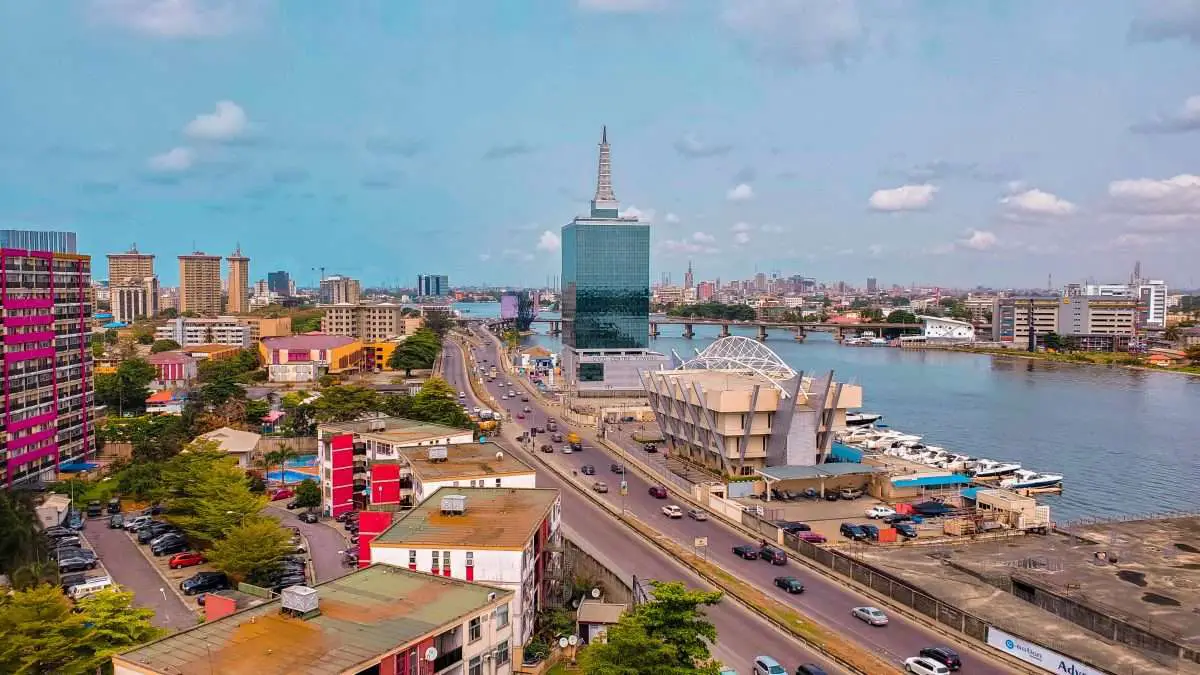There’s no doubt that people always see how rural areas perpetually change structurally, physically and economically. This indeed, is a product of urbanization. The definition of urbanization revolves around population density, city life and social structure changes in a given society. The natural increase in population due to the improvement in health care delivery and the influx of the rural population to the city are the determinant for the growth of cities. Nevertheless, urbanization came with its various phases, dimension, problems, and more.
Phases of Urbanization in Nigeria
People always wonder if there was urbanization before colonialism in developing countries like Nigeria. Well, urbanization came in various phases in Nigeria. The first phase which is the pre-colonial phase first emerged before colonialism. Then, some Nigerian cities were known as traditional urban centers made of fortresses, city walls and many more. These traditional urban centers include Ife in Osun state, which happens to be one of the traditional urban centers before colonialism. There are also urban traditional centers like Daura in Katsina, Borno, Sokoto, Benin and Zazzau in Zaria local government of Kaduna state.
The colonial phase, on the other hand, began with the introduction of a monetary economy and the development of modern transportation network in Nigeria which made the rural population migrate to cities where these amenities were available. Thus, the colonial administration developed towns that later became urban centers which included Gusau in Zamfara state, Enugu, Kaduna, and others. Most of these towns developed as a result of the presence of natural resources and for them being seats of colonial administration.
The post-colonial phase was the third stage of urbanization which emerged after independence in 1960. Cities continued to grow at the expense of the rural areas, particularly with the creation of more administrative units (e.g., states and local government) and more priorities given to the urban areas.
Dimensions of Urbanization in Nigeria
There are various ways in which scholars of urbanization view this process. Some view it as a behavioral process, others a structural process, and lastly a demographic process. The behavioral process is of the view that individual patterns of attitudes change as a result of the experience associated with urban ways of life. The structural process is concerned with the societal pattern of change from agricultural to non-agricultural communities. While the demographic process is concerned with the concentration of population due to rural migration to the urban areas in order to attain a certain level of subsistence in a given environment.
Despite all these views, there are scholars who are anti-urbanization and blame urbanization for the disappearance of rural life, broken homes, traditions, customs, lack of social cohesion and orderliness among other social vices. The pro-urbanization scholars considered urbanization the engine room of invention, progress and modernization. However, an understanding of urbanization has to be in line with how people react to living in cities and how individuals are socially structured to reality with urban life and not only on growth in the urban economy and the spatial distribution of urban structures.
Urban Problems in Nigeria
There’s no doubt that the convergence of a large population of people in a large place results in the formation of cities and often creates numerous social problems such as poverty, crimes, unemployment, alcoholism, rape, housing problems, suicide, divorce, drug addiction, violence, protest and even pollution.
The Chicago school of Sociology, as explained by George Ritzer in his classical Sociological Theory, clearly demystified urbanization. Many scholars of sociology such as Karl Marx, Emile Durkheim, Auguste Comte, George Simmel and others spent their time studying and trying to proffer solutions to the problems that modernity (outcomes of Industrial and French revolution) brought about. Nevertheless, these problems brought by urbanisation can still occur in places not designated as cities or urban areas.
Rural-urban Migration
The rate of occurrences of urban problems is usually alarming in the urban areas when compared to that of the rural areas where inhabitants usually engaged in subsistence agriculture and craft making. Rural-urban migration happens to be one of the problems brought by urbanization and modernity.
With the acquisition of some level of education, people in the rural areas migrate to urban areas like Lagos, Portharcourt, and Abuja in search of white-collar jobs, which are barely adequate for the teeming job seekers. Migrants with little or no education are also found in the cities searching for better means of livelihood. Consequently, a high rate of unemployment is recorded in the cities. One implication of the high rate of unemployment is the heightened rate of urban poverty and slums in Nigeria’s urban centers like Lagos, Kano, Onitsha, Portharcout, Ibadan, and Kaduna.
In these places, those who are unable to meet their daily basic needs may resort to illegal methods of livelihood such as kidnapping, cyber-crime, theft, armed-robbery, drug trafficking, drug peddling, prostitution and many more social vices. These vices constitute the problems of urbanization and modernity as reported by the National Bureau of Statistics (NBS), Specifically, the poverty rate in urban areas is 17.8 percent compared to 3 percent in the rural areas.
Housing in urban centers
Furthermore, still going with the anti-urbanization view or anti-modernist view, the problem of accommodation for shelter in urban areas is a big problem. As a result of large numbers of people moving to urban centers, many urban residents face accommodation problems. Due to poverty resulting from failure to secure better jobs, many urban residents cannot afford the rent of decent apartments. Correspondingly, they resort to living in dilapidated houses in an un-hygienic environment. Others also resort to squatter settlements. Living in such unhealthy environment exposes the residents to communicable diseases and social vices.
Pollution and urbanization
Pollution happens to be one of the problems of urbanization as African urban centers like Lagos, Portharcout, etc., are characterized by industrialization. The consequences are widespread pollution owing to industrial production of goods and services. These cities, therefore, predispose its inhabitants to polluted environments which render them prone to health hazards. Thenceforth, city dwellers’ health is further endangered by improper disposal of waste by urban households.
Economic Inequality
Urbanization however, brings about urban class and inequality which is a very vital sociological concept. Class which happens to be a large-scale categorisation of people based on economic status which principally affects their lifestyle. According to Weeler in 2005, urban centers are typified by a significant degree of economic inequality which results in spatial segregation. In other words, the location occupied by a social category in an urban environment is determined by their economic status and these bring about the rich living with the rich and the poor for the poor theory. The spatial distribution of urban residents is a reflection of classes, economic status and more and consequently pushes the poorer classes to living in slums, overcrowded areas and squatter settlements.

In the urban areas, access to resources such as political power, economic reward, social network, physical safety and quality education is determined by the location of an individual in a particular society. Therefore, in a particular city different locations are unequal in terms of availability of facilities when juxtaposed with other locations. In other words, urban dwellers may have access to facilities such as electricity, health care services, and education depending on where they live in the city.
Thus, quality of life in the city is determined by localities and access to basic amenities, which is informed by class or other factors. Spatial segregation in the urban areas nevertheless, is described as consequences of income inequality, race, ethnicity, and religion, among other factors. According to United Nation’s Habital report, slums are indications of urban poverty and inequality. Hence, cities with high economic inequalities are more likely to experience a high rate of crimes and Nigeria is no exception.
Challenges of Urbanization in Nigeria
The economic implications of urbanization cannot be left untouched as a growing number of unskilled and agricultural workers migrate to urban areas in Nigeria and the formal economy often struggles to absorb the influx into the workforce. In most cases, it’s the informal economy that allows those who cannot do the formal job to make ends meet from casual work in manufacturing and construction to small scale training activities. The unregulated informal sector brings about various influxes to the formal economy as informal workers tend to overburden the formal economy.
Since the informal sector is untaxed and unregulated, the informal economy is less productive than the formal economy and as such Nigerian urban centers failed to collect much needed revenue through taxation. The proportion of the GDP generated by the informal activities is much lower than the percentage of the population involved in the sector. Consequently, development analysts would argue that attention should be given to formalization or regulation of the large informal activities where much of the excess workforce is likely to be clustered.
Problems Nigeria Must Address Moving Forward
Inasmuch as urbanization is concerned in Nigeria, it has social effects. Many urban areas are overcrowded and overpopulated, poverty is widespread, and the existing social services can’t meet demand for health-care, education, and more. The unbalanced age distribution in developing countries like Nigeria adds to the social and economic difficulties compared to industrialized countries as a much larger proportion of the population in developing countries like Nigeria is under the age of 15.
A youthful population needs support and education, and during this time, its members would not be economically productive. However, many developing countries lack the resources to provide universal education when their families are poor and many children must work full-time and others have to eke out a living as street children, begging for whatever they can. Unfortunately, when these street children grow matured, most of them become homeless or criminals.







